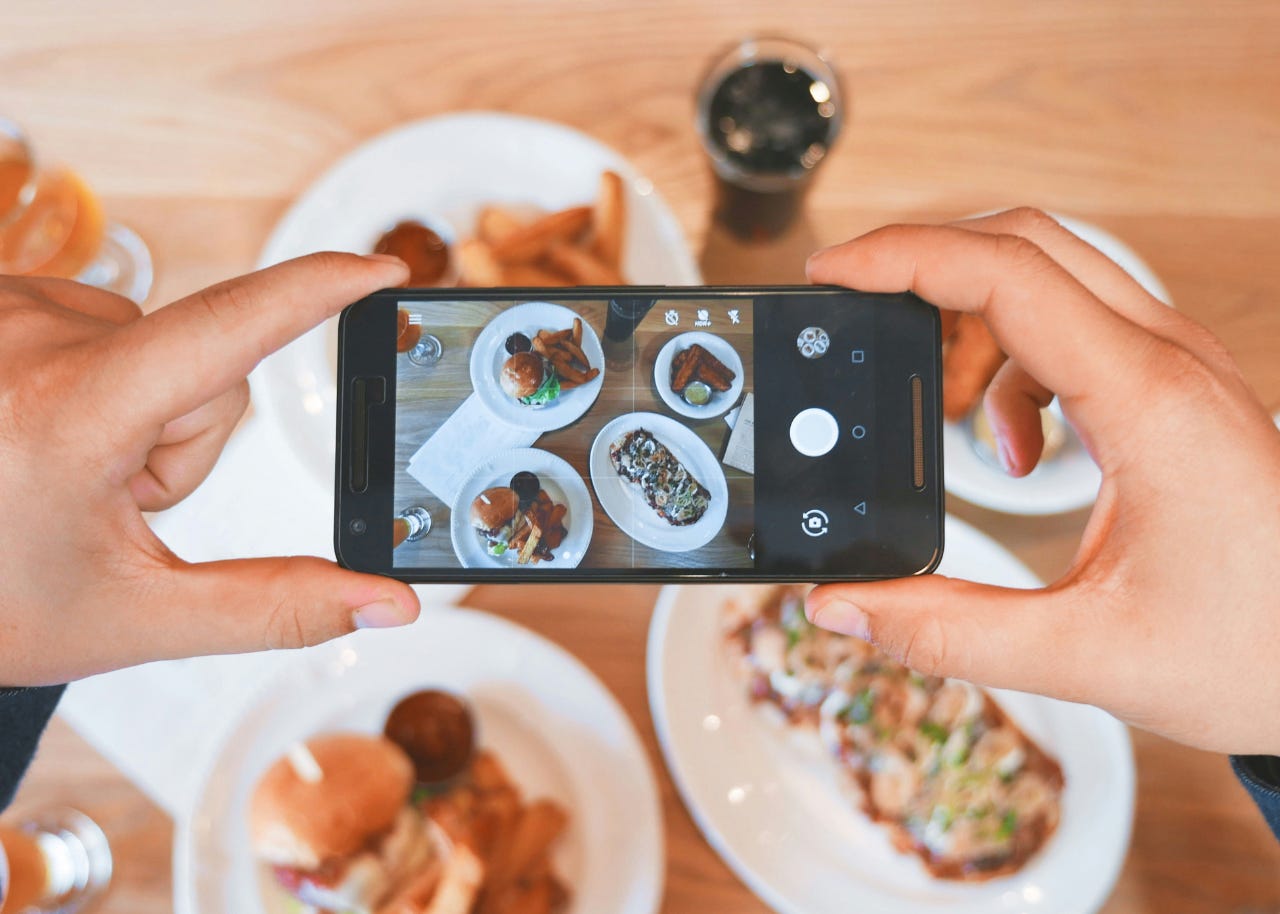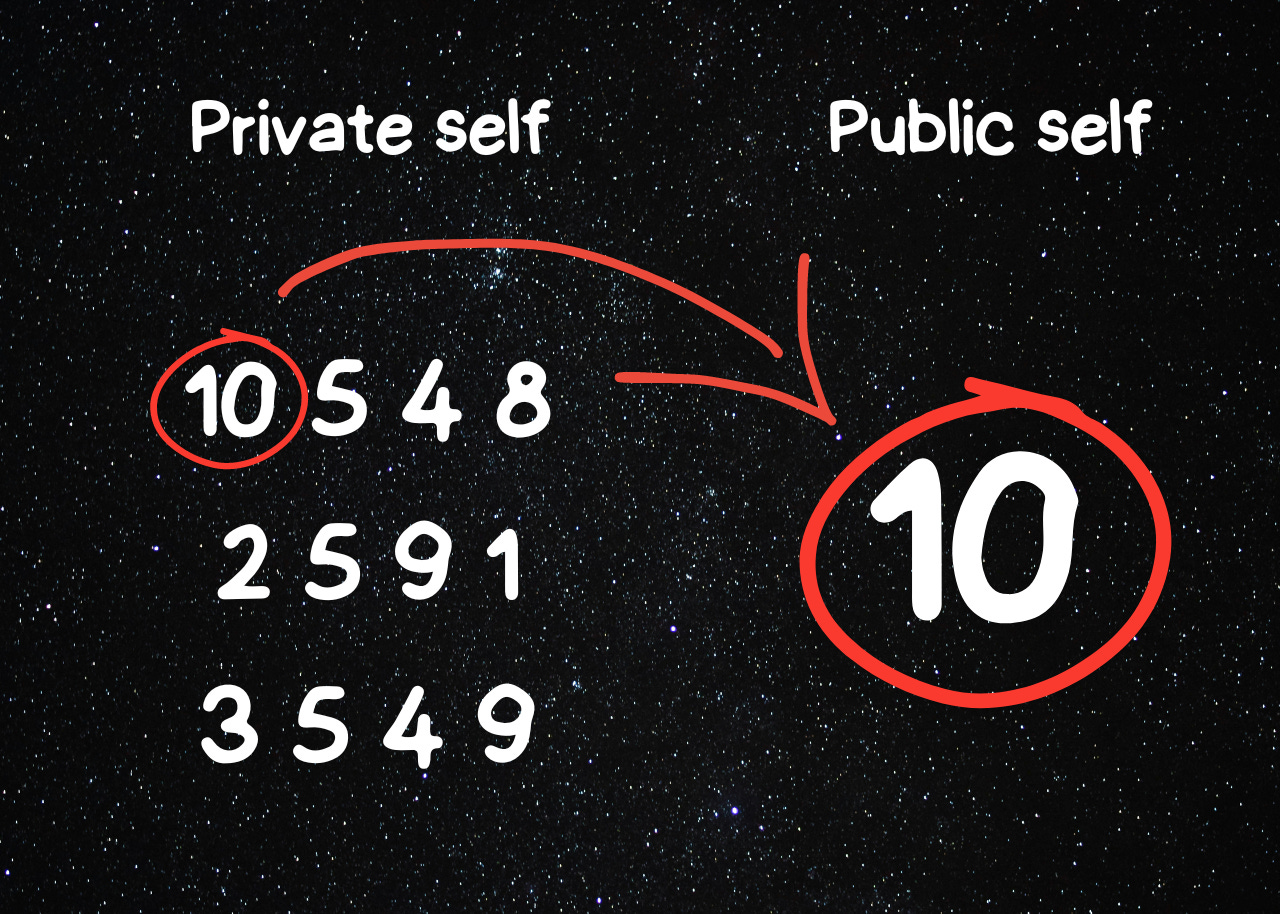🏷️ Categories: Social relationships, Happiness
Never before has the word ‘sharing’ sounded that bad.
If you've wandered around the digital world you'll have seen that social media is all about ‘sharing’. We supposedly share something, we share our intimate space in ways that would have seemed unthinkable a few decades ago.
It is the step of making the intimate public.
Extimacy
Jacques Lacan spoke 50 years ago of ‘extimacy’ to describe how the intimate was beginning to become public, 50 years ago he already saw this tendency.
Look at the present.
Years ago we would be terrified that someone would steal our carefully treasured photos, now we purposely share them with the world. The reason is simple, to gain gratification through social validation, which is also quantifiable, which further enhances the desire to share, as you can compare ‘how much you are worth’ through ‘likes’, ‘comments’, etc.
We have become advertisers for ourselves.

The lie of sharing
Sharing had 2 meanings in the dictionary:
To make another person share in something that is yours. We shared a snack.
To have something in common with another person. We share a house.
Social networks started to use this word even if we don't share anything.
We don't share our food with someone and we don't share the experience of being at a concert. We upload a picture of what we ate at the restaurant and the concert we went to. We are not sharing, we are showing off.
The difference is not small and the choice of the word was not accidental.
Sharing has a morally positive connotation, it wouldn't sound the same if it said ‘show it off to your followers’, although that's what we do. By using the word ‘share’, the social network makes you feel that you are really making others part of your moment, but this is not true. The RAE has had to include a new meaning for ‘compartir’: ‘to make a file available to other users’.
Who are you sharing dinner with if there is no one at the table with you?

The screen is not even 1%.
The sociologist Erving Goffman spoke of the ‘public self’ and the ‘private self’.
The public self is what we display, while the private self is the reality we keep to ourselves. We tend to think that people are as they appear on networks, however, each publication is a careful selection of who we appear to be.
Not who we are.
On the screen we display only 1% and most of what is posted are results and good times, not hard processes and difficult moments. This creates a distorted perception in others. Our point of reference is to compare our good and bad side only with the good side of others.
‘Everyone else is doing well, except me. That is the feeling it generates.
That, unfortunately, is the consequence of the ‘public self’ and the ‘private self’.
The dehumanisation of interaction
The real world is three-dimensional and we interact live 99% of the time.
The digital world is flat and we interact live 1% of the time.
We have evolved to pick up many nuances in live, face-to-face conversation, yet digital impoverishes us because we don't use all our senses. We can't smell, touch or see the person as they are. We become a bunch of pixels and that worsens the quality of our social interactions and our well-being (Kross et al., 2013; Nie and Hillygus, 2002).
We are avatars who send messages to each other most of the time in delayed mode, yet real life is live and face-to-face. Interaction loses the human part.
I think this also explains some of the hostility on sites like Twitter.
Isn't the real, tangible world more satisfying?
I ask myself that every time I meet someone and they keep looking at their phone...
Do you share or exhibit?
There's nothing wrong with showing off a moment, but I wanted to make you see the difference.
I stopped using networks like Instagram because I felt I was becoming a publicist for my own intimate life, my life was becoming a newsletter. Jardín Mental is a newsletter and I do share information with the intention of bringing value to the people who read it.
That is the radical difference between sharing to contribute and sharing to show off.
Ask yourself what the intention is in your act of sharing and you will find clarity.
✍️ Your turn: Do you still use other networks? Do you have the same feeling as me? I think Substack is a valuable exception that we should take care of.
💭 Quote of the day: ″If you can, have something to bring to the table, because that will make you more welcome.″ Randy Pausch.
We keep in touch, take care 👋.
References 📚
Goffman, E. (1959). The Presentation of Self in Everyday Life. Anchor Books.
Kross, E., Verduyn, P., Demiralp, E., Park, J., Lee, D. S., Lin, N., ... & Jonides, J. (2018). Facebook use, loneliness, and depression: A longitudinal study. Computers in Human Behavior, 87, 183-191.
Nie, N. H. y Hillygus, D. S. 2002 The impact of internet use on sociability: time-diary findings. IT Soc. 1, 1–20. https://www.researchgate.net/publication/247901330_The_Impact_of_Internet_Use_on_Sociability_Time-Diary_Findings








alvaro, how do i send you a monthly cup of coffee?
i'm buying you a cup of coffee, alvaro. to say thanks the original thoughtful pieces you write. no ai, right? tell me, no ai, please. keep going. j.